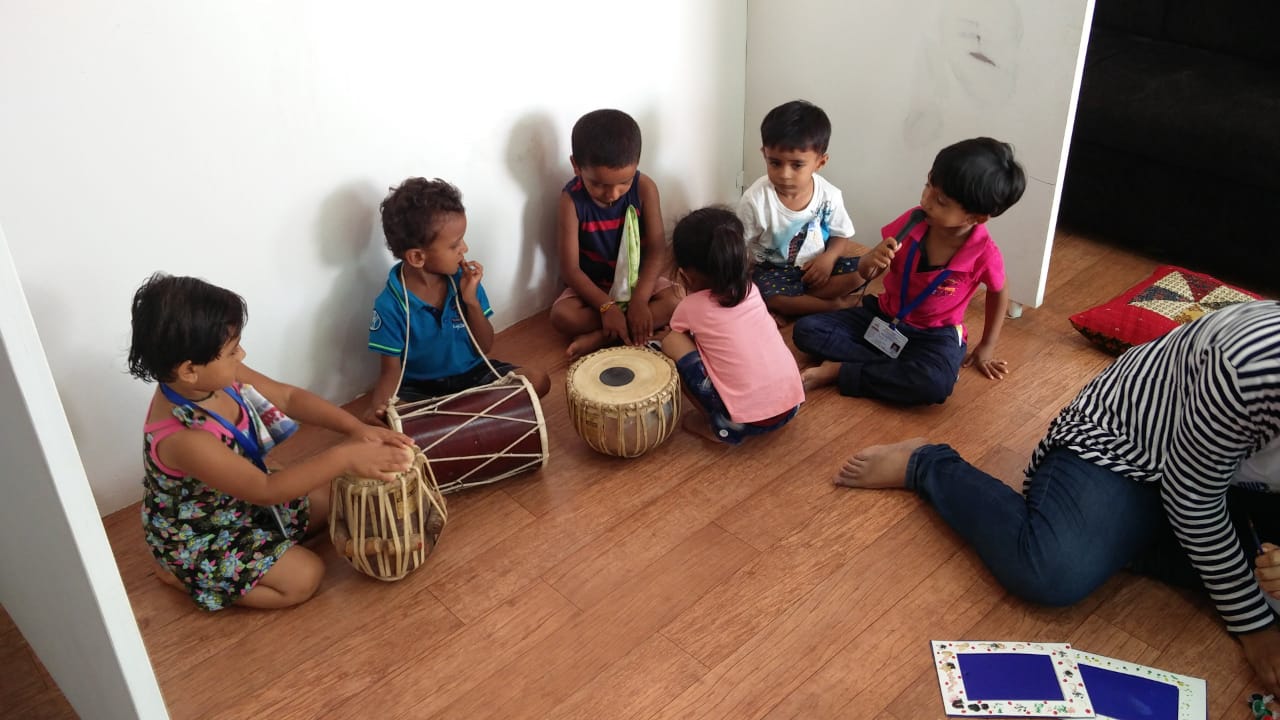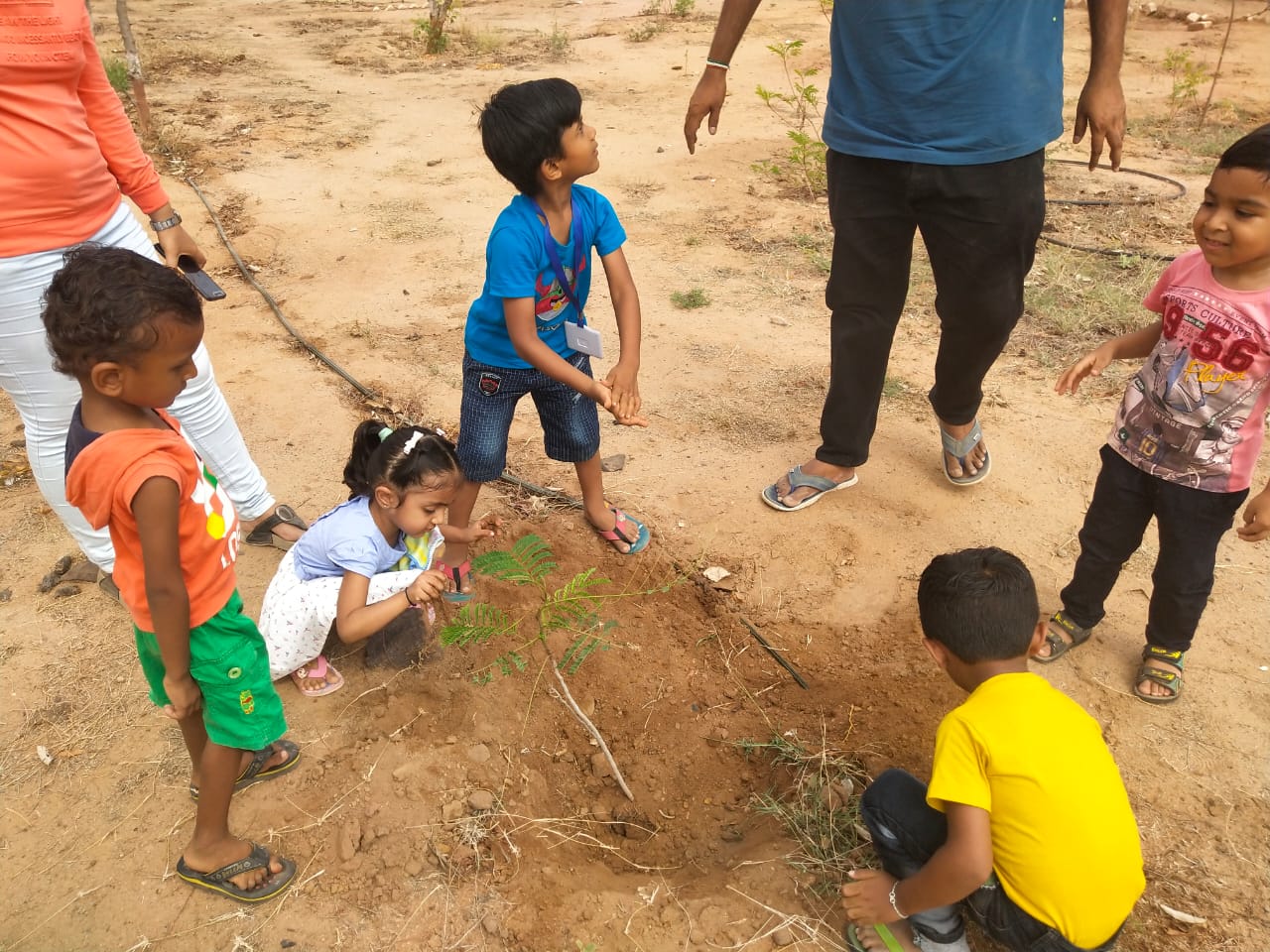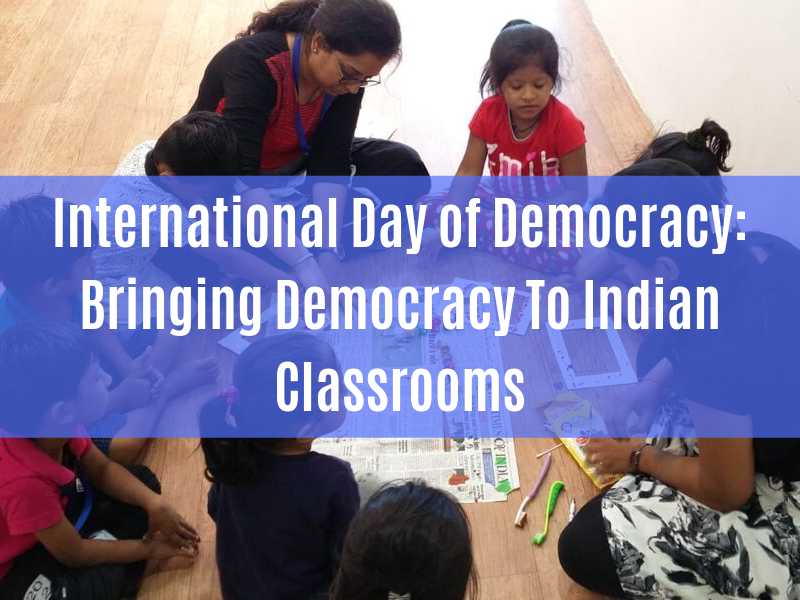September 15, every year, is celebrated worldwide as the International Day of Democracy. The United Nation promotes it as the day we all collectively ‘review the state of democracy in the world’.
The UN calls for this year’s commemoration to re-emphasise on the fact that democracy, in fact, is about people.
India is built on the ethos of democracy and pro-people policies and it is pertinent to instil the same values in our children from a young age. Sure we do have lessons in the same as part of the school curricula but how much of it is really understood by students through just theory?
Fortunately, there are a few academicians and edupreneurs who are batting for ‘democratic model of schooling’.
Recommended: Early lessons in patriotism
Democractic education is not a new concept. Its roots can be traced back to the 17th century. This model of learning and education believes in combining democratic values with education, teaching children the value of respect, community and self-determination, not just in theory but also in practice.
“Democracy Needs To Be Woven Into Our Culture”
Amukta Mahapatra is the founder of SchoolScape, a Centre for Educators and has formerly served as an educational advisor to the state of Tamil Nadu. She was also the convenor of International Democratic Educational Conference 2018. She believes that although India holds the status of the world’s biggest democracy, it cannot truly be called one until we have a culture of democracy. This culture will only be brought when we teach children the ethos of it in their daily life.
“Fortunately, in India, the idea of diversity is part of our lives right from Day 1. We see diversity in terms of caste, creed, religion and class all around us. While there might be deviations and certain political influences, but largely we grow up with the idea of respecting differences and diversity,” she said.
 She further adds, “India can be called truly democratic only if its children are taught the ethos of democracy. It can not be done solely by conducting mock parliaments and meetings like such. It has to be woven into the culture. Adults listen to children and children listen to adults so that there is no power imbalance. The student-teacher relationship, and the teacher-management relationship needs an overhaul. We have to move away from the instruction-giving system to conversational system.”
She further adds, “India can be called truly democratic only if its children are taught the ethos of democracy. It can not be done solely by conducting mock parliaments and meetings like such. It has to be woven into the culture. Adults listen to children and children listen to adults so that there is no power imbalance. The student-teacher relationship, and the teacher-management relationship needs an overhaul. We have to move away from the instruction-giving system to conversational system.”
Also read:World Press Freedom Day: Interview with journalists Josy Joseph and Sandhya Ravishanker
When asked about how an ideal democratic classroom would look like, she said, “You will see a classroom where every child is working, either individually, in pairs or in groups. You will see that these children groups are mixed age groups, because that is how it is in real life, you deal with different people. Also, it is not even necessary that all children are inside the classroom, some might be outside, busy in their chosen field of work. There will be quiet hymn of activity.”
These children will be allowed to talk among themselves, however, there will be few ground rules, like talking softly so as to not disturb their peers. On the role of teachers, Mahapatra says that instead of being the only source of knowledge, they will be facilitators of knowledge. “Children will learn from each other and using different learning techniques. At the end of the day they will be writing in a journal about what they learnt through the day. And one part of the day would be dedicated to sitting down with everybody and discussing things.”
“Encouraging A Sense Of Self-Determination”
While the concept of democratic classrooms is quite popular in western countries, Indian schools are slowly catching up.
 One such school is Prayaas, founded by brother-sister duo of Praharsh Patel and Mukta Patel. This school right now has a batch of 13 students. At Prayaas, children are encouraged to learn things which they are interested in like mathematics, music or arts. Interestingly, instead of teachers, Prayaas has facilitators.
One such school is Prayaas, founded by brother-sister duo of Praharsh Patel and Mukta Patel. This school right now has a batch of 13 students. At Prayaas, children are encouraged to learn things which they are interested in like mathematics, music or arts. Interestingly, instead of teachers, Prayaas has facilitators.
“We have three full-time facilitators, one of them is my sister and co-founder Mukta Patel. We encourage the children to have a sense of self-determination. We also have experts visiting us to help children a stronger grip of things in their area of interest,” said Praharsh Patel.
Patel feels that this mode of learning gives the children an edge over those educated under the conventional system, since they would have more practical knowledge. “It is a fact that people, when they pursue careers of their choice, naturally their performance is better.”
Shraddha Goled
Posted in International, News























